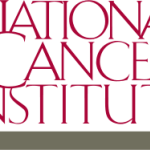- Industry: Government; Health care
- Number of terms: 6957
- Number of blossaries: 0
- Company Profile:
The National Cancer Institute (NCI) is part of the National Institutes of Health (NIH), which is one of 11 agencies that compose the Department of Health and Human Services (HHS). The NCI, established under the National Cancer Institute Act of 1937, is the Federal Government's principal agency for ...
The hyclate salt form of doxycycline, a synthetic, broad-spectrum tetracycline antibiotic exhibiting antimicrobial activity. Doxycycline hyclate binds reversibly to the 30S ribosomal subunit, possibly to the 50S ribosomal subunit as well, thereby blocking the binding of aminoacyl-tRNA to the mRNA-ribosome complex. This leads to an inhibition of protein synthesis. In addition, this agent has exhibited inhibition of collagenase activity.
Industry:Pharmaceutical
The humanized monoclonal antibody huPAM4, directed against the pancreatic cancer antigen MUC-1 and radiolabled with the gamma-emitting radioisotope indium I 111, with radioisotopic and antibody activities. Upon administration, indium In 111 monoclonal antibody huPAM4 may bind to MUC-1-positive tumor cells, allowing radioimmunolocalization with gamma scintigraphy. Overexpressed by many tumor cell types, MUC-1 antigen, a mammary-type apomucin, is a high-molecular-weight transmembrane glycoprotein.
Industry:Pharmaceutical
The gluconate salt of calcium. An element or mineral necessary for normal nerve, muscle, and cardiac function, calcium as the gluconate salt helps to maintain calcium balance and prevent bone loss when taken orally. This agent may also be chemopreventive for colon and other cancers.
Industry:Pharmaceutical
The fumarate salt of a synthetic phenoxy-2-propanol-derived cardioselective beta-1 adrenergic receptor antagonist with antihypertensive and potential cardioprotective activities. Devoid of intrinsic sympathomimetic activity, bisoprolol selectively and competitively binds to and blocks beta-1 adrenergic receptors in the heart, decreasing cardiac contractility and rate, reducing cardiac output, and lowering blood pressure. In addition, this agent may exhibit antihypertensive activity through the inhibition of renin secretion by juxtaglomerular epithelioid (JGE) cells in the kidney, thus inhibiting activation of the renin-angiotensin system (RAS). Bisoprolol has been shown to be cardioprotective in animal models.
Industry:Pharmaceutical
The fruit of Cassia acutifolia and Cassia angustifolia (Cassia) with laxative and purgative activities. The active ingredients in senna fruit include the hydroxyanthracene glycosides sennosides A and B (rhein dianthrones) and sennosides C and D (rhein aloe-emodin heterodianthrones). Sennosides irritate the bowel lining and stimulate the bowel muscular coat, particularly in the colon, resulting in accelerated bowel transit and evacuation.
Industry:Pharmaceutical
The fluorine-18 (18F)-radiolabeled pyrimidine analog 5-fluorouracil (5-FU) with positron-emitting activity. Upon administration, 5-(18F)fluorouracil distribution in tumor tissue may be measured with positron emission tomography (PET). The degree of 5-(18F)fluorouracil uptake in tumor tissue may help to predict the response to 5-fluorouracil-based chemotherapy or to determine the response to other therapeutic agents used to treat 5-FU-sensitive tumors.
Industry:Pharmaceutical
The flower-heads of either the plant Anthemis nobilis or the plant Matricaria chamomilla. Chamomile has a warm aromatic odour and a very bitter taste and contains volatile oils which are a mixture of butyl and amyl angelates and valerates. Due to its coumarin constituents, large doses may interfere with coagulation.
Industry:Pharmaceutical
The F(ab)2 fragment of Me1-14, a murine IgG2a monoclonal antibody directed against proteoglycan chondroitin sulfate-associated protein expressed by gliomas and melanomas. By binding to proteoglycan chondroitin sulfate-associated protein, monoclonal antibody Me1-14 F(ab')2 conjugated to a radioisotope may localize gliomas and melanomas when used as a tracer in radioimaging applications; in radioimmunotherapeutic applications, this agent conjugated to a radioisotope may be used to deliver targeted radiotoxicity to these tumors.
Industry:Pharmaceutical
The eicosasodium salt of a mixed-backbone antisense oligodeoxynucleotide with chemosensitizing properties. Custirsen inhibits testosterone-repressed prostate message-2 (TRPM-2). Administration of custirsen abrogates the anti-apoptotic effect of TRPM-2, thereby sensitizing cells to chemotherapy and resulting in tumor cell death. TRPM-2 is an anti-apoptotic clusterin that is overexpressed by prostate cancer cells and is associated with chemoresistance.
Industry:Pharmaceutical
The DNA sequence that encodes the protein cytokine interleukin-2 (IL-2). When introduced as the complementary DNA (cDNA) form into tumor cells by, for example, a genetically engineered adenovirus vector, the transfected IL-2 cDNA expresses IL-2 which may activate antitumoral natural killer cells and elicit an antitumoral cytotoxic T-cell response, resulting in an inhibition of tumor progression.
Industry:Pharmaceutical
